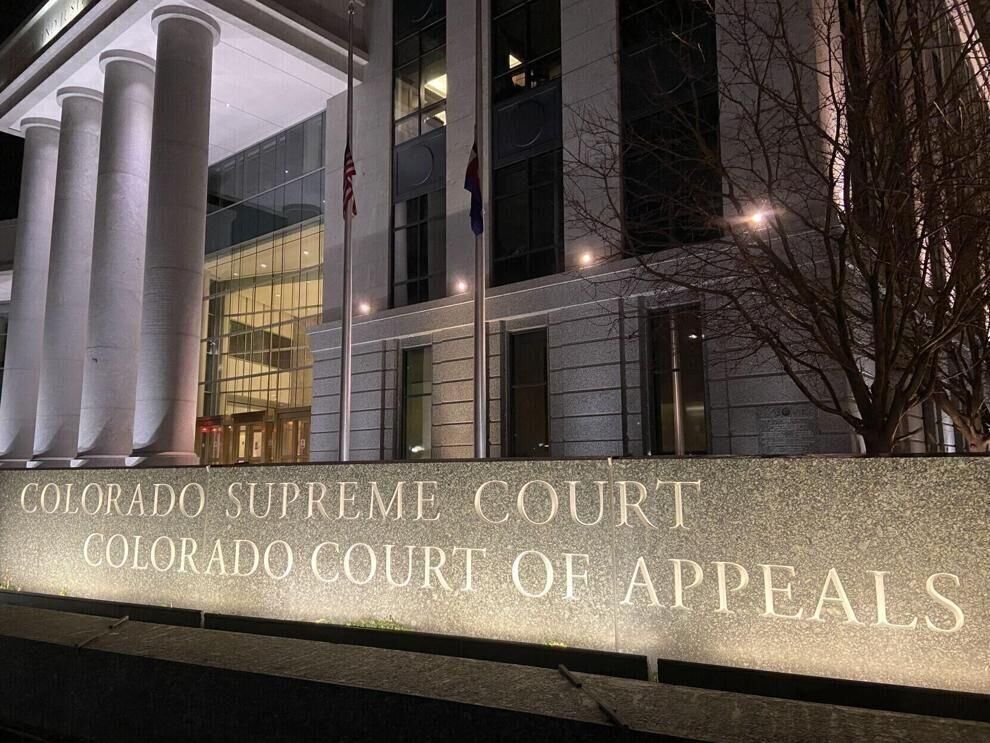Appeals court reverses another Adams County conviction for judge’s faulty analogy

Colorado’s second-highest court on Thursday once again overturned a defendant’s convictions because an Adams County judge illustrated reasonable doubt to jurors in a way that improperly lowered the prosecution’s burden to prove him guilty.
The Court of Appeals has repeatedly reversed the convictions of defendants for more than a year – exclusively from Adams County – after the Colorado Supreme Court decided in 2022 that some judges’ well-meaning attempts to explain reasonable doubt in plain English actually reduced the threshold for a guilty verdict.
The Supreme Court’s ruling in Tibbels v. People, which was the first time the justices reversed a conviction due to a reasonable doubt analogy, likewise arose from Adams County.
In Tibbels, a trial judge compared reasonable doubt to the crack in the foundation of a “dream” home, suggesting a homebuyer would hesitate to purchase the house once they discovered the defect. The Supreme Court instead found the illustration made it seem as if jurors should go ahead with the “purchase” – and presume the defendant guilty – unless a significant “crack” appeared in the prosecution’s case to cause an acquittal. In reality, the opposite is true: Defendants are innocent until proven guilty.
Case: People v. Mendez
Decided: August 31, 2023
Jurisdiction: Adams County
Ruling: 3-0
Judges: Jerry N. Jones (author)
Stephanie Dunn
Katharine E. Lum
Background: State Supreme Court draws line on unacceptable use of analogies by trial judges
The latest case before the Court of Appeals concerned the 2019 trial of Paul Leonard Mendez, who jurors convicted of burglarizing a construction site.
During jury selection, then-District Court Judge Tomee Crespin attempted to explain the concept of reasonable doubt by asking the jury to imagine purchasing their dream home.
“The sun is literally only shining on this one piece of property, and it is raining everywhere else,” she described. “You go into one of the spare bedrooms and go over to the closet. And over by the closet there’s a crack. Are we buying that house?”
Crespin continued to add other defects to the example – a difficult-to-open door and crumbling drywall. Reasonable doubt, she explained, is a hesitation to act in matters of importance, and “we use it every day. We just don’t call it that.”
Crespin referred to the dream home analogy throughout the remainder of jury selection.
Mendez’s attorney on appeal argued the example was similar to the faulty illustration in Tibbels because it likened a serious decision – convicting someone of a crime – to a routine home purchase. The Colorado Attorney General’s Office, in response, did not address or defend Crespin’s analogy.
A three-judge panel of the Court of Appeals agreed with Mendez. The dream home illustration, wrote Judge Jerry N. Jones on Aug. 31, “effectively lowered the prosecution’s burden of proof and undermined Mendez’s constitutional right to the presumption of innocence.”
The panel ordered a new trial.
To date, there have been nine analogy-related cases out of Adams County in which the Court of Appeals has overturned convictions in the wake of the Tibbels decision. Crespin was responsible for the majority of the faulty illustrations. Voters in Adams and Broomfield counties chose not to retain her in 2020.
A spokesperson for District Attorney Brian Mason did not return an email seeking comment.
The case is People v. Mendez.
Also on Thursday, a different appellate panel addressed a criminal case out of Jefferson County in which the trial judge made improper comments, although they did not rise to the level requiring a reversal of the defendant’s convictions.
Jurors in 2020 convicted Richard Ernest Ramirez of stealing personal property worth less than $500. On the first and only day of trial, then-District Court Judge Robert Lochary sent the jury to begin deliberations at 4:53 in the afternoon.
“Folks, usually we go until about 5 o’clock,” Lochary said, “because there’s a whole pyramid of people that keep this place going. And they are going to have to stay here if we go past that, just to let you know.”
The jury returned at 5:33 with a guilty verdict. On appeal, Ramirez argued that Lochary had seemingly set an expectation for a speedy verdict.
Case: People v. Ramirez
Decided: August 31, 2023
Jurisdiction: Jefferson County
Ruling: 3-0
Judges: Lino S. Lipinsky de Orlov (author)
Elizabeth L. Harris
Timothy J. Schutz
“Although the court did not expressly prohibit the jury from deliberating past 5:00,” wrote public defender Heather Wong, “its comments served no other discernible purpose than to strongly encourage the jury to limit its deliberations to avoid inconveniencing court staff. The comments were also coercive because they implied that this was, in the court’s estimation, an open-and-shut case warranting little to no deliberation.”
The prosecution rejected that notion, adding the jurors could have just as easily believed the case was open-and-shut in favor of an acquittal.
The Court of Appeals agreed with Ramirez that Lochary’s comments suggested jurors should think about the court employees they would be inconveniencing with lengthy deliberations.
“The information was irrelevant to the substance of the jury’s duties, and it would be improper for the jury to let a consideration of the number of people affected by their after-hours deliberations bear on their decision,” wrote Judge Lino S. Lipinsky de Orlov.
Although the comments were inappropriate, the appellate panel saw no prior court decisions establishing that a judge’s initial commentary on the length of deliberations constitues coercion. The court declined to order a new trial.
The case is People v. Ramirez.













